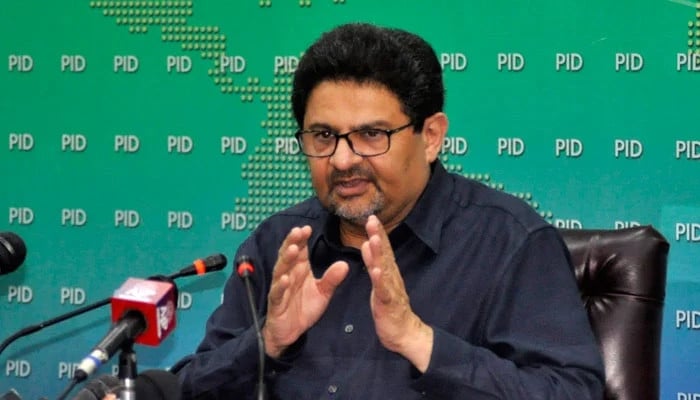Miftah Ismail stresses need to tax real estate sector
Former finance minister Miftah Ismail said Saturday that there was a need to impose taxes on the real estate sector to generate more revenue for the country and ensure that prices of properties do not inflate.
“Real estate is a big sector for us, with two businesses in it. One is construction. The other is real estate property,” Miftah said during Geo News’ program “Naya Pakistan”.
He suggested that construction should be encouraged in the country; however, he added that “file trading” should be discouraged.
“There should be a tax on property. People are buying and selling files,” he said.
He further said: “What these well-off people who property do is they circulate it. They get 15%-20% return from the property in dollars, and this is not right.
“What this does is: it makes purchasing property impossible for poor people.”
“Various NOCs are sought for setting up industries. It is difficult to start an industry and easy to invest in real estate,” he said, adding that there was a need to “rebalance” the taxes.
Moreover, he said imposing taxes on agriculture was complicated.
“Only provinces can collect this tax, not the centre. [However] you have given the provinces so much money. They don’t bother collecting the agriculture tax,” he added.
He added that only acreage should be taxed.
Last week, Miftah’s successor as finance minister, Ishaq Dar, said that the government had no plans of imposing new taxes on the agriculture and real estate sectors.
Media reports suggested that the IMF had asked the government for a plan to impose taxes on the real estate and agricultural sectors.
However, Dar rejected the reports saying: “No further burden will be passed on to the people. All the commitments made with the IMF are on the finance ministry’s website.”
Furthermore, Miftah during his interview revealed that retailers (shopkeepers) could not be taxed during his stint at the Q-block due to “internal politics.”
“There are 2.2 million shops [in Pakistan] and only 30,000 pay income tax,” he said.
“When we tried to impose taxes, shopkeepers put political pressure,” he said, mentioning that as a result, “we had to back down”.
Miftah’s remarks came in response to the recent remarks made by former Federal Bureau of Revenue (FBR) chairman Shabbar Zaidi.
In an interview two days ago, Zaidi expressed frustration with bringing retailers under the tax net.
“Retailers are a market mafia and when we take action against them, they go on a shutterdown strike.”
The traders in Karachi, he also said, had “thrashed” him and were unwilling to participate in any documentation.
“They [retailers] said that no one in the market would pay tax.”
“Unpacking” these remarks, Miftah said that Zaidi’s words held a lot of truth; however, the term “mafia” was not accurate.
“I don’t think these lobbies.. which exist all around the world —polititcal lobbies, retailers’ lobbies and agricultralists’ lobbies — should be called mafias,” Miftah said.
Zaidi, in his interview, remarked: “None of our governments are powerful enough to fight with [retailers]. The tax system cannot be fixed unless you bring them under the tax net.”
In response, Miftah said it was the retailers’ duty to pay tax.
“If a tax of 3,000 rupees is imposed on all shopkeepers, it will not make much difference to them. Who cannot pay Rs100 in tax per day? Understandably, no one likes to pay taxes, but it is a lobby. Not a mafia.”
For all the latest business News Click Here


